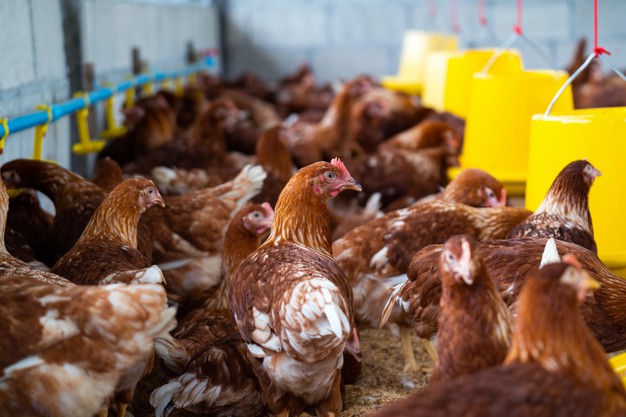The Federal Government has alerted livestock breeders and poultry farmers of the outbreak of anthrax in neighbouring countries.
A statement by the Permanent Secretary, Federal Ministry of Agriculture, Dr. Ernest Afolabi Ernest indicated that Nigeria was alerted on the outbreak of the zoonotic disease in Northern Ghana, Burkina Faso and Togo.
The statement, therefore, called for caution and vaccination of animals in the states of Kebbi, Sokoto, Niger, Kwara, Oyo, Ogun and Lagos.
According to the statement, the disease has so far claimed the lives of farmers and their livestock in the neighbouring countries.
“The general public is therefore advised to desist from the consumption of hides (Pomo), smoked meat and bush meat as they pose a serious risk until the situation is brought under control”, it advised.
Meanwhile, the Ministry through the Permanent Secretary is urging members of the public to remain calm and vigilant as the Federal Government has resuscitated a standing committee on the control of Anthrax in the Ministry of Agriculture and Rural Development.
The Ministry added that relevant institutions and collaborators have been contacted with the aim of controlling the outbreak, this is in addition to the sensitization of State Directors of Veterinary Services nationwide.
Anthrax, caused by the bacterium Bacillus anthracis, is a highly infectious and often fatal disease that affects both humans and animals. Poultry farmers can be impacted by anthrax, although the disease primarily affects herbivores such as cattle and sheep. The susceptibility of poultry to anthrax may vary depending on the specific strain and circumstances of exposure. According to available literature, cattle and sheep are more susceptible to anthrax compared to goats, horses, and poultry.
Anthrax is known to produce spores that can persist in the soil for extended periods, allowing the disease to initiate outbreaks under favorable conditions. Although anthrax is enzootic in many Asian and African countries, it has also been reported in Australia, parts of Europe, and America. The disease can have different clinical courses in animals, ranging from peracute to chronic forms. In severe cases, infected animals may succumb to anthrax without displaying premonitory clinical signs. Blood may fail to clot properly, and it can be found in the mouth, nostrils, and anus of animals that die from anthrax.
While anthrax is susceptible to various antibiotics, including penicillin and oxytetracycline, these treatments are most effective under field conditions. In the event of an outbreak, it is crucial to implement early measures to break the infection cycle, such as maintaining strict biosecurity and vaccinating uninfected animals. Anthrax remains a challenge in farm animal production in many countries, including those where poultry farming is practiced.
It’s important to note that the specific impact of anthrax on poultry farmers may vary depending on factors such as the local prevalence of anthrax, farming practices, biosecurity measures, and the susceptibility of poultry to the disease. Further research and localized studies would provide more specific insights into the effect of anthrax on poultry farmers.

















